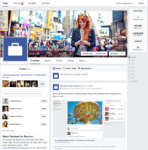Cambridge Analytica is the newest scandal to haunt the world wide web, and it can all be dwindled down to how the company used data that was captured from Facebook for all the wrong reasons.
The company got their hands on ‘big data’ from Facebook and sold it to third parties for political purposes – to the point where the company believes it was the major influencer of the outcome of the 2016 U.S Presidential election.
Essentially the scandal is the ultimate concoction of the concepts ‘echo chamber’, ‘filter bubble’ and ‘fake news’ all rolled into one.
Obviously, this is a major breach of privacy and everyone’s outraged. Zuckerberg, CEO of Facebook, has a high reputation to uphold, so the privacy breach means there’ll be changes to how apps access our info on Facebook. The platform will soon be rolling out changes that include:
- Creating a new section at the top of the Facebook News Feed that shows what apps are using Facebook’s data, and allows revoking the permissions of those apps much easier.
- Reducing the amount of data required when signing in to external apps via Facebook. In the past, the data included age, location, interests and more – now, it’ll only include name, profile image, and email address.
- Automatically revoking developer’s access to data if a user hasn’t used the app for three months.
- Investigating third-party apps that collected large amounts of data prior to 2014 and conducting audits on suspicious activity.
- Identifying developers who have misused information and informing users who have downloaded their aps.
- Requiring developers to get approval before accessing posts and private data.
On the other hand, some are saying that Cambridge Analytica is the beginning of the end of Facebook, with the company losing $45billion in the first few days of the scandal emerging; largely due to the impact it could have on Facebook Advertising (and on agencies like ours!).
Additionally, influential powerhouse Elon Musk recently deleted his Facebook Page, along with the Business Pages for Tesla and SpaceX. Similarly, Kylie Jenner and Chrissie Teigen’s rejection of Snapchat caused the company’s value to plummet by millions.
One of the reasons we opt for Facebook Advertising here at Threesides is because it’s extremely targeted and customisable, and it’s constantly learning and optimising to achieve the best possible result. We often see great outcomes for our clients when we choose this as an advertising option.
However, large companies shutting their Pages down, users being frightened of how their own data is been used against them, and the price of the Facebook stock dropping rapidly are all major warning signs for the future of advertising on Facebook, and possibly even social media.
So, could this be the end of social media? And if so, where will our advertising dollars go next? We’ll be keeping an eye on all the updates to come out of the scandal.
UPDATE 5 April 2018: Facebook has updated its APIs and permissions to reflect the changes it promised to implement to add security to the access of user’s data. CEO Mark Zuckerberg claims that the saga also has had ‘no meaningful impact’ on Facebook Advertisers.
UPDATE 8 April 2018: One of Threesides’ favourite scheduling and monitoring tools, Iconosquare, has removed multiple features as a result of Facebook’s crackdown on data-usage for third-party apps.
UPDATE: 10 April 2018: Facebook Users will see a notification pop-up in their newsfeed today, telling them if they were affected by Cambridge Analytica.





